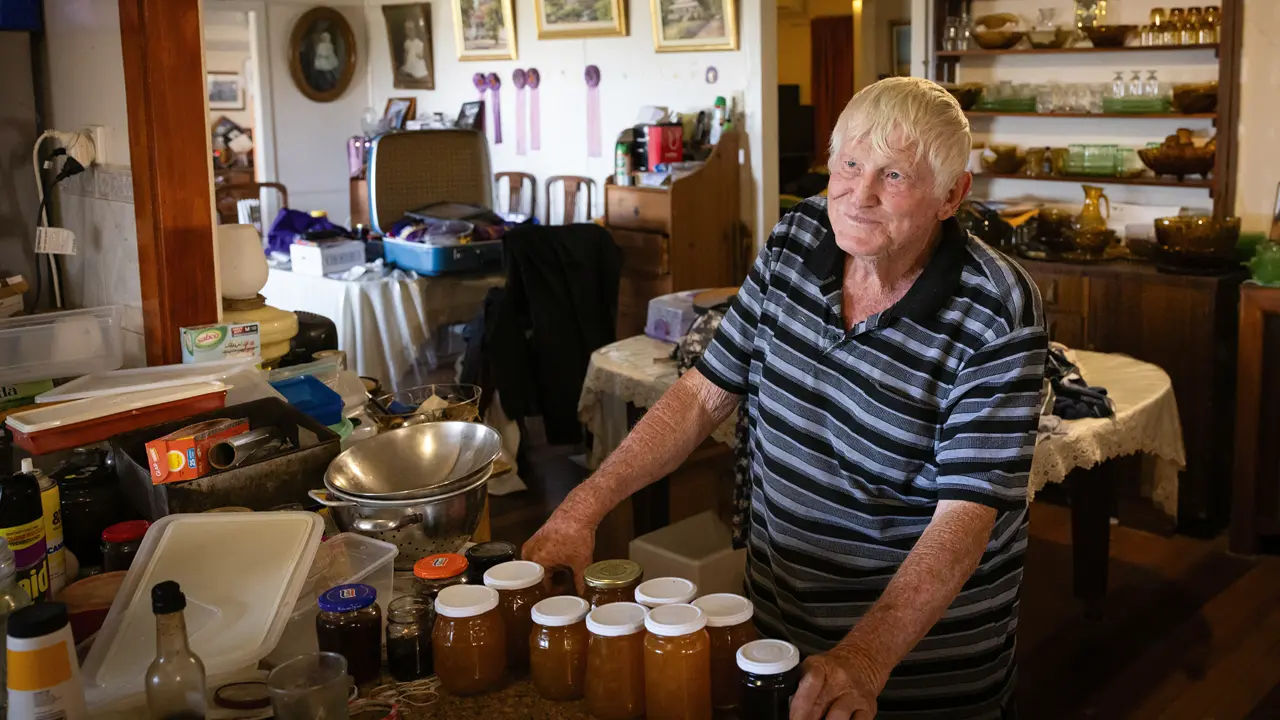Kewpie dolls and tent shows may have fallen by the wayside, but country shows and festivals are as much a part of life in the bush as a hard day’s work. The way we celebrate is changing, but the party isn’t about to wind up any time soon.
Story By Emma Mulholland
"And the hairdresser is down – like a cow in the drought,” the MC booms through a storm of red dust kicked up by four wild, bucking donkeys and a young woman scrambling to escape the stampede of errant hooves and tumbling riders, mustering up as much dignity as she can. Above them, the Northern Territory flag flies high and a crowd of 300 station workers and towns people, plus a couple of stunned backpackers, hang onto beers and steak sandwiches as they cheer on the riders and their somewhat confused rides.
About 130 kilometres north of Alice Springs, the crowd at Aileron Bush Weekend is too small for the travelling showmen with their fairy floss and wild rides to worry about. Instead, bucking bulls do the job – as they have done for years. There are no sideshows, main stages or celebrity judges. The only showbags are sacks full of bouncing, giggling kids scrambling towards the sack-race finishing line. They’re a dusty mess of chequered shirts and broad-brimmed hats and a black-and-white photograph of them could fit into any album compiled over the past century. And that’s exactly how the people here like it.
In an age when bush gatherings are getting increasingly expensive, more elaborate and hungry for the tourist dollar, to watch neighbours meet for the first time in months is to experience the best of life in the bush. People in cities may live closer together, they might share their walls or the shade of their trees, but out here the folks share their fortunes. A good season is something for everyone to celebrate, and it’s something the people at Aileron take as seriously as the Mexican Donkey Race.
It is, in many ways, just as old-timer Ange Castagna remembers the campdrafts held at Aileron Racecourse in the 1960s. Back then, as many as 30 stockmen would line up for a bull ride. But the tyrannies of government regulation and a declining rural population put an end to that. Station life is changing, as it is all over the country. A tough marketplace, a long drought and a more professional approach to raising livestock has changed the way many do business. It means there are less men and women around to sit on committees – or on the back of bucking broncos – but even so, recent times have brought an explosion of festivals, a campdraft revival and a thriving country-music scene to our backblocks. The five riders Ange cheers on from her ringside seat today may be just a shadow of the old line-ups, but like many others she’s just happy to see the kids still know how to ride.
This story excerpt is from Issue #77
Outback Magazine: June/July 2011









